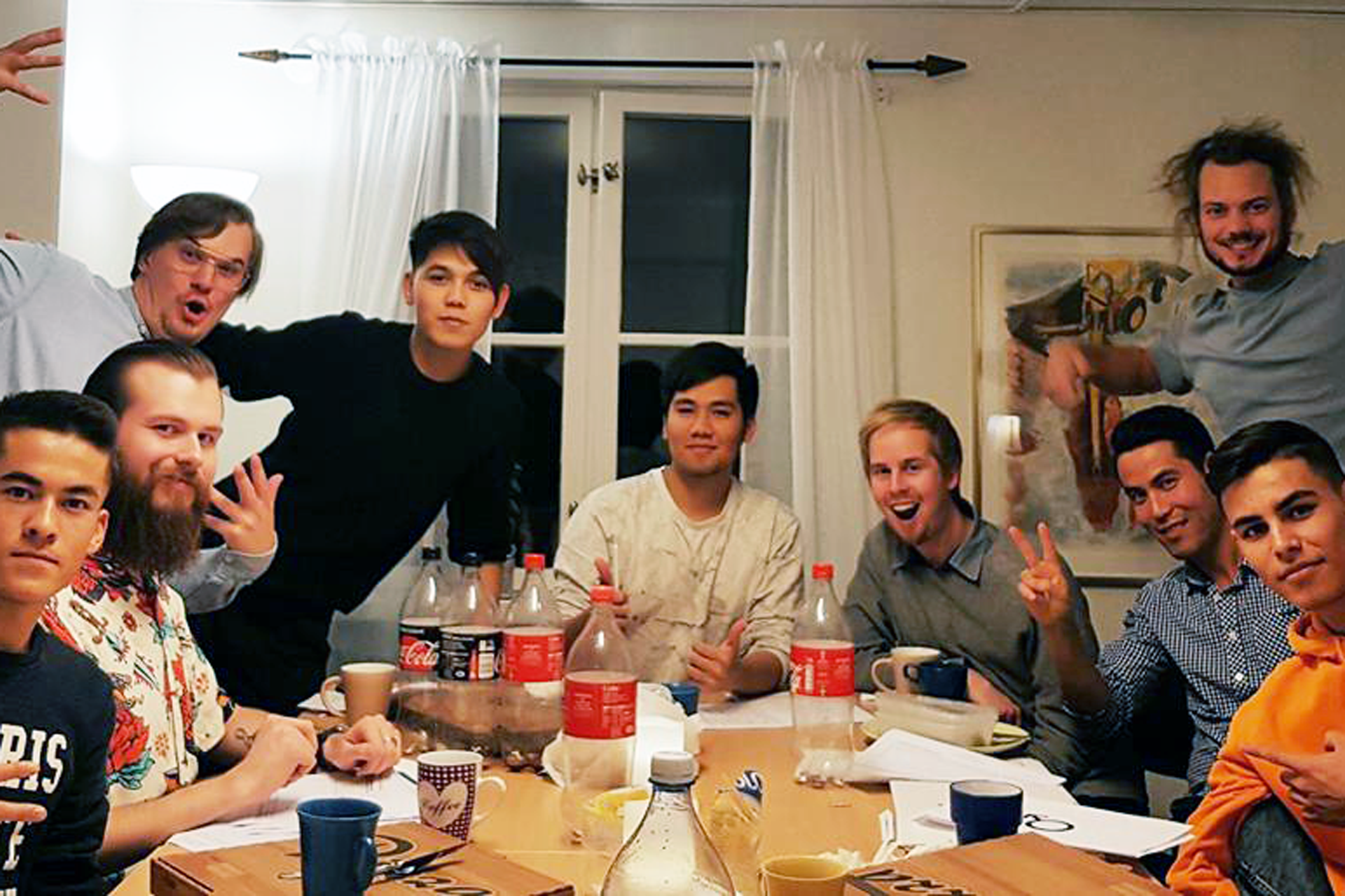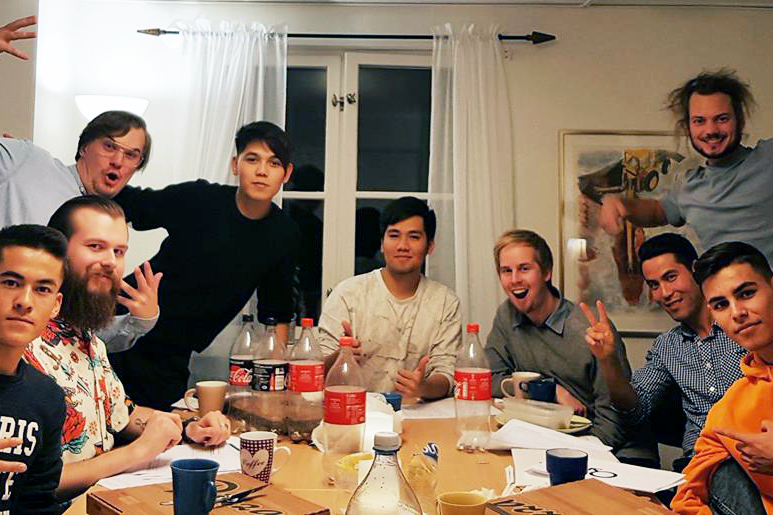Theatre can give the unemployed the courage to act; an intensive four-day workshop provides participants with new tools. Telling their own stories brings participants one step closer to the labour market.
Cultural and Creative Industries – Consorzio Materahub, Italy
Matera, Italy
Purpose of the method
The purpose behind the theatre’s methods is to strengthen the soft skills of the unemployed in order to bring them closer to the labour market. The methods also reinforce self-belief, motivation and initiative.
Background
Fake It Till You Make It grew out of a project run by the Norrbotten Theatre in Sweden: Ung Scen Norr (Youth Stage North). There, theatre was used as a platform to promote the development of the skills required to seek employment, in a project financed by the European Social Fund (ESF).
The Norrbotten Theatre subsequently joined with the ReteTeatro41 network of regional theaters based in the Basilicata region of southern Italy. The network was seeking to exchange innovative methods for using theatre to strengthen the young, elderly and migrants in the labour market.
The Italian organisation Materahub had the opportunity to apply for funding from Erasmus+ to develop the exchange of methods and to establish these across Europe. They successfully did so, together with Inova and the regional public employment service in Madrid.
And so began Fake It Till You Make It: from a method developed by the Norrbotten Theatre in northern Sweden via a number of other methods and tools developed in other European countries.
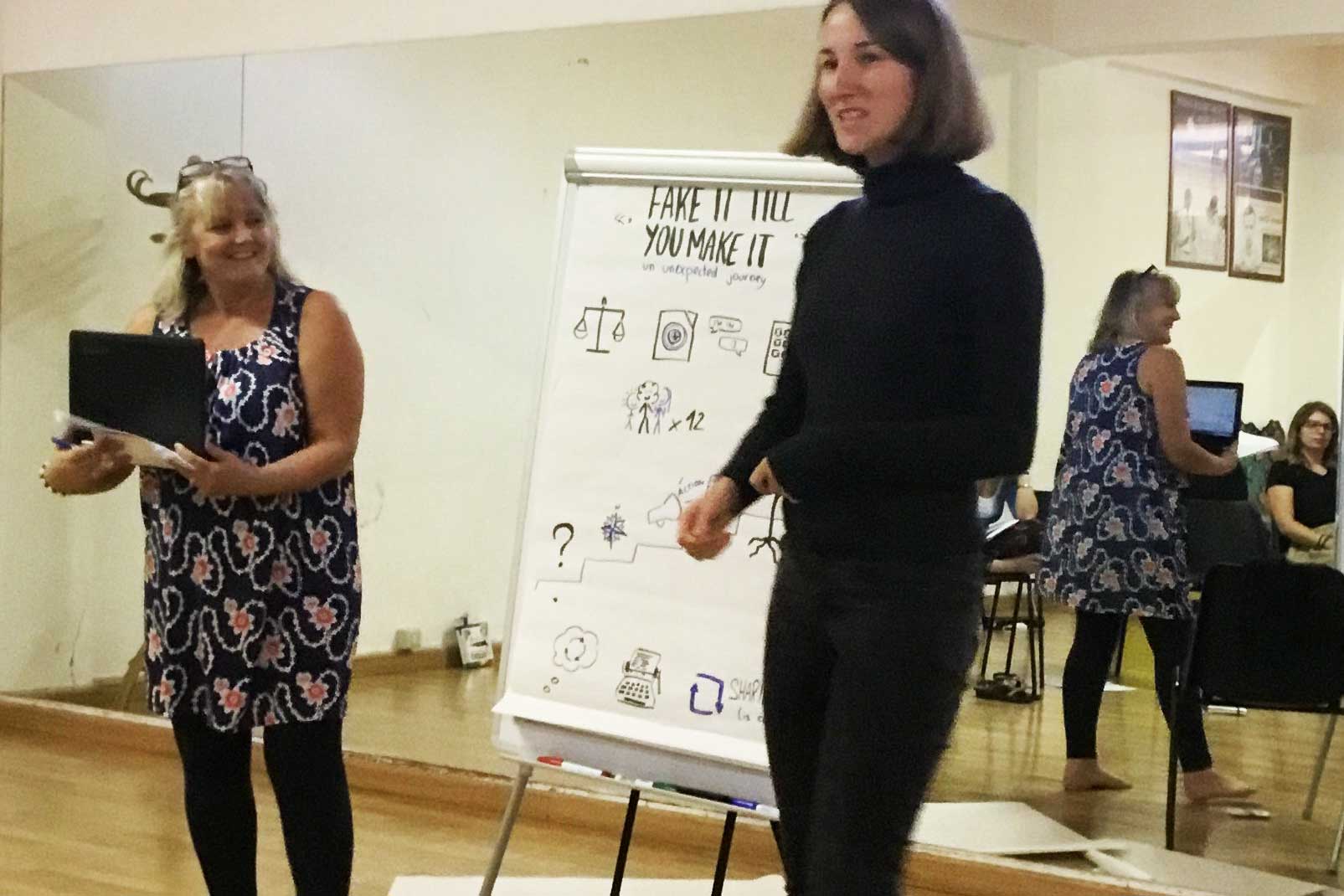
Description of method
Fake It Till You Make It, which is based on the Spot On! method developed at the Norrbotten Theatre’s Ung Scen Norr, is a four-day workshop, normally conducted in groups of 10 to 20 unemployed people between the ages of 16 and 60. The aim of the method is to use drama exercises and theatre to improve the participants chances of finding employment.
Drama and theatre can be very effective tools for creating personal development. They strengthen groups and create a safe space that encourages participants to find the courage to act, both alone and together with others. By working towards tangible, comprehensible and clear objectives, the working process can be kept short, intensive and effective. This type of working process helps each participant to focus on their goals; there is no room for the inner pessimist to sow doubt among the participants over the four days of negotiating the process together.
The method:
- strengthens the group by supporting the individual;
- inspires the use of theatre as a working method;
- bases presentation or performance on individual personal stories;
- introduces other organisations or companies working in creative industries; and
- brings the individual one step closer to the labour market.
For those already close to the labour market, the method can provide increased self-esteem and satisfaction, as well as a gentle push to take the next step. For those who find themselves far from the labour market, it can be a small step towards improving their situation.
The method is structured as follows:
- Participants are recruited.
- Practical preparation.
- Implementation (exercises, training tools and rules).
- Performance and script.
- Evaluation
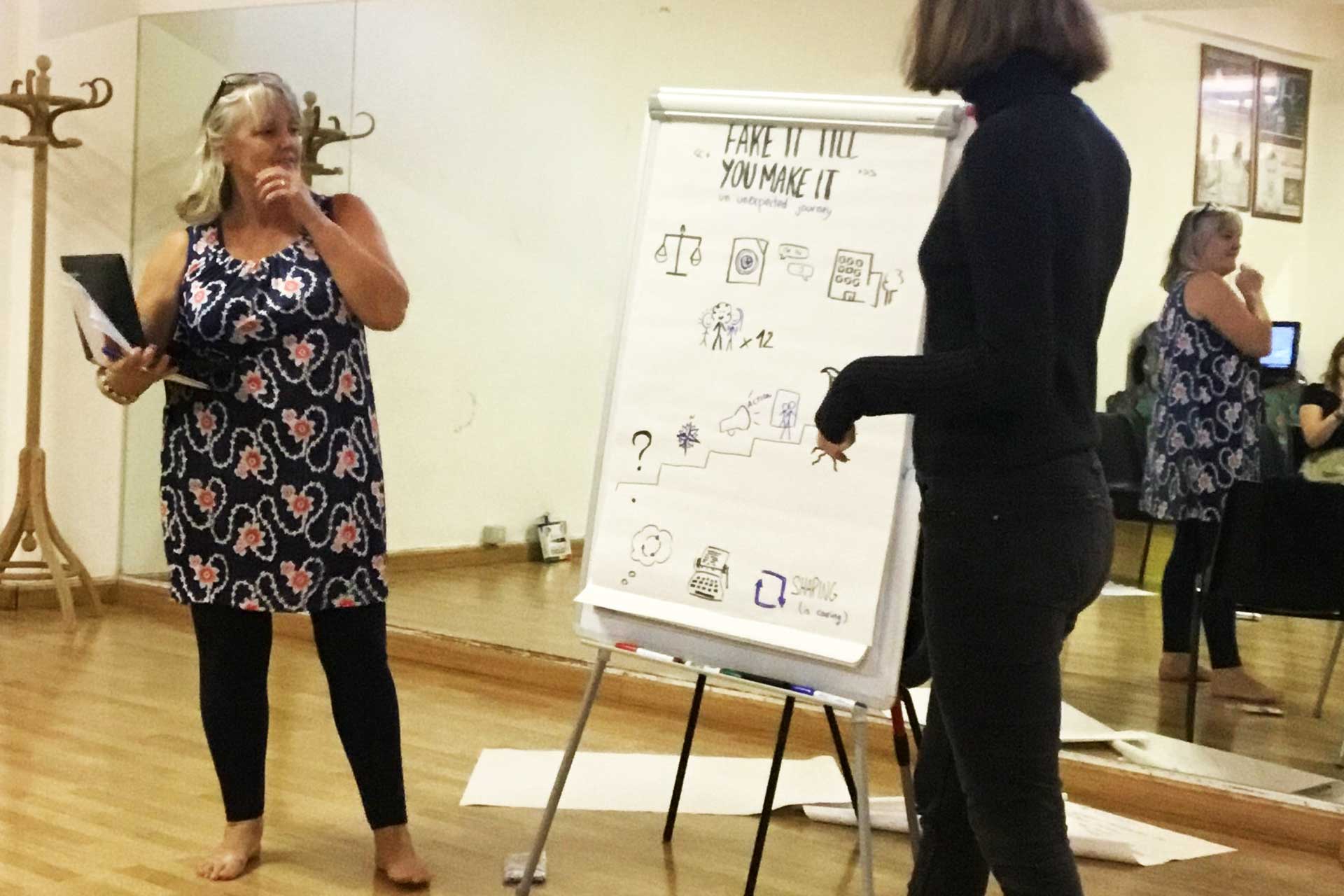
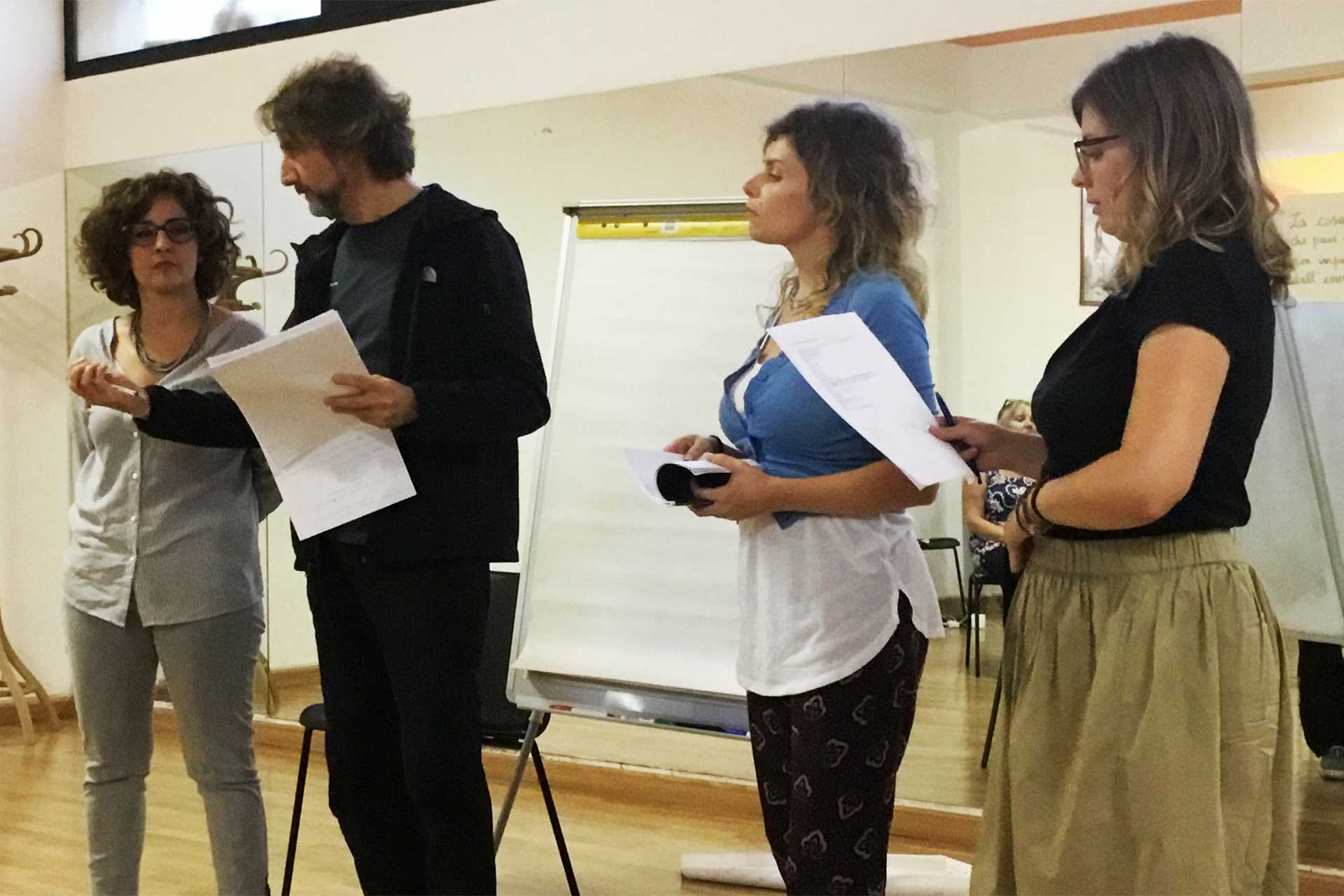
Results
The method has been tested in Sweden, Italy, Spain and the United Kingdom. The participants were young people, the unemployed in general and unemployed women in particular. Participation in Spain was so high that the public employment service was forced to organize a second round of tests in order to provide places for all applicants. In Italy, the method was implemented together with T3 innovation Basilicata, a regional agency promoting the transfer of innovation.
The Fake It method works for those groups in need of developing soft skills that make them more employable. It also works for those who need to regain their self-confidence. Migrants are a group that can fully benefit from the method and another EU project is therefore under development. This is called Fem Talks and will use theatrical methods to strengthen the position of migrant women.
The regional public employment service in Madrid (APEM), which works to promote employability and support job seekers, is integrating the method into its operations.
Materahub and L’Albero in Italy have built a partnership with a local office focusing on work and vocational training. They will be raising the method to regional level through established networks.
Inova has integrated the method into its customized activities to promote skills development among the unemployed and other disadvantaged groups.
Study materials
Collaboration
Fake It Till You Make It has collaborated with the following organisations:
- Public employment services.
- Theatre networks.
- Development agencies.
- Public authorities responsible for the labour market and education.
Resources and funding
European Partnership of the Erasmus + , the project Fake It Till You Make It (Norrbotten Theatre, Materahub, Compagnia teatrale L’Albero, APEM, Inova)
Contact
If you have any questions regarding the method, please contact Cultural and Creative Industries – Consorzio Materahub.
